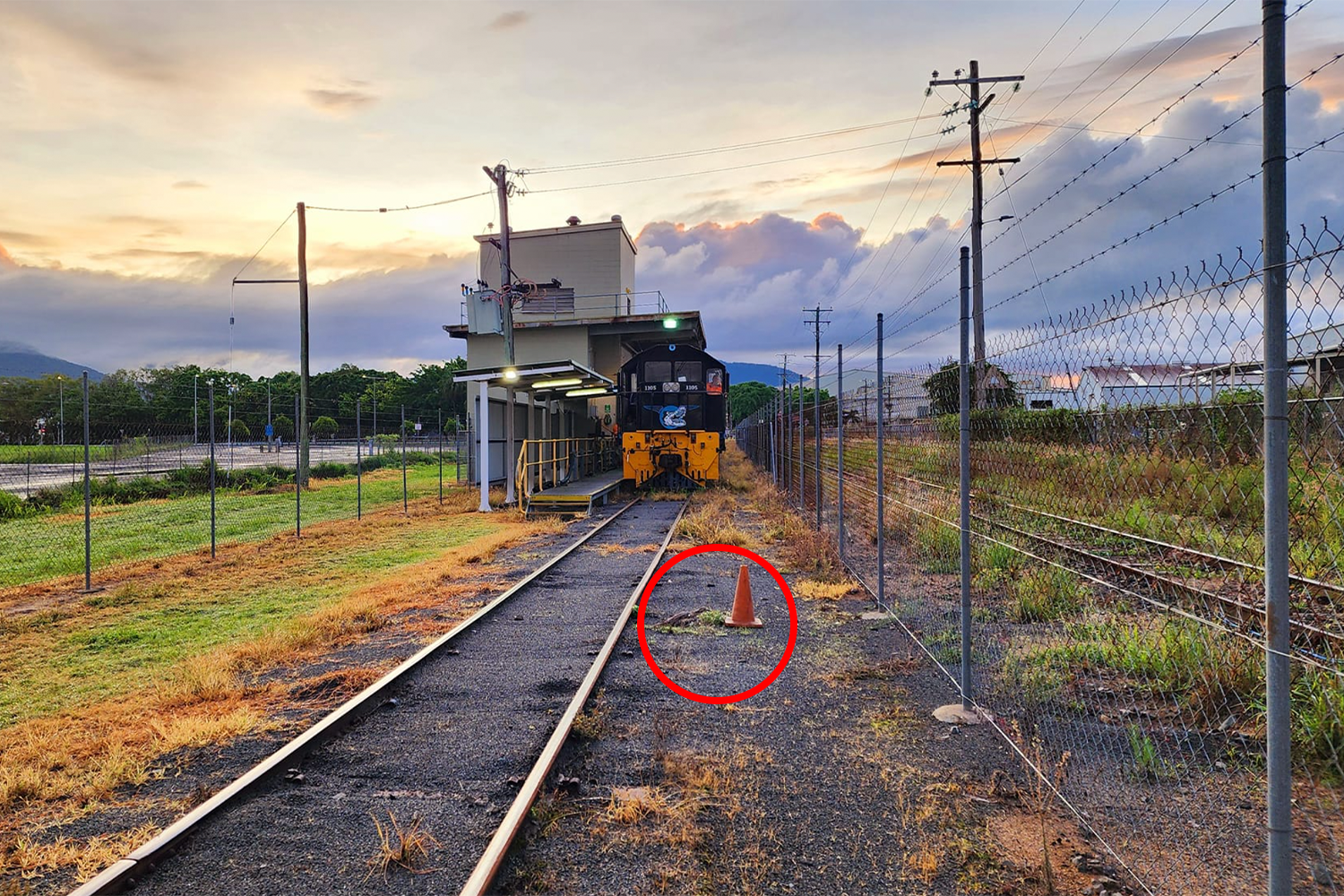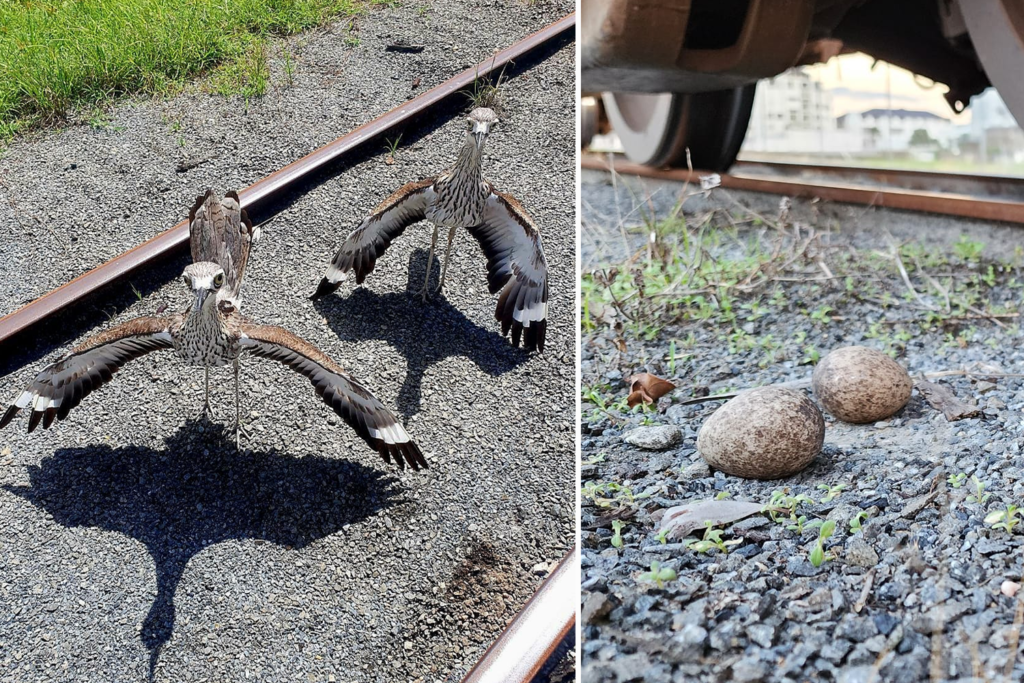A wildlife documentarian has stumbled upon a shocking discovery – a native bird’s nest, just 30 centimeters away from a regularly used railway in Cairns.
Wil Kemp, the documentarian, is amazed by the bird’s choice of nesting spot, saying it’s either “one of the worst spots ever or one of the best.”
The Unlikely Safe Haven
The bird, a bush-stone curlew, has laid its eggs in a spot that may seem dangerous to humans, but Kemp believes it’s actually a safe haven.
Since trains never swerve, and there are no predators in the area, the eggs are protected from harm.

Kemp’s discovery highlights the importance of coexisting with wildlife and making small changes to our behavior to ensure their safety.
Living in Harmony with Wildlife
Kemp emphasizes that we can live with wildlife if we just “tweak our behavior” slightly. He believes that by changing our attitudes and being more tolerant, we can avoid conflicts with animals.
In this case, all it took was locating the nest and keeping an eye on it to ensure the birds’ safety. This approach is not only beneficial for the birds but also for the ecosystem as a whole.
The Importance of Conservation
Bush-stone curlews are not yet endangered in Queensland, but expert Shoshana Rapley warns that we should work to keep it that way.
By keeping common species common, we can prevent extinctions and maintain the health of our ecosystem. Rapley urges people to learn more about native birds and to avoid interfering with their natural habitats.
What You Can Do to Help
If you’re interested in helping to conserve native birds, here are a few tips:
- Learn about the different species and their habitats
- Avoid interfering with nests or chicks, even if you think they’re in danger
- Support conservation efforts and wildlife carers
- Spread awareness about the importance of coexisting with wildlife
The Power of Coexistence
Kemp’s discovery is a powerful reminder that we can coexist with wildlife if we just make a few small changes.
By working together, we can protect our native birds and preserve the beauty of nature for future generations. So, next time you’re out and about, take a moment to appreciate the wildlife around you, and remember – every small action can make a big difference!

